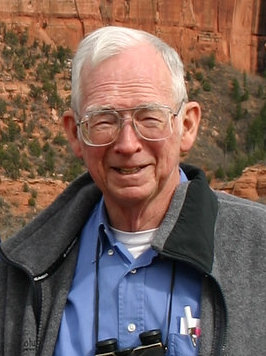
Peter Albert David Singer is an Australian moral philosopher and the Ira W. DeCamp Professor of Bioethics at Princeton University. He specialises in applied ethics, approaching the subject from a secular, utilitarian perspective. He wrote the book Animal Liberation (1975), in which he argues for vegetarianism, and the essay "Famine, Affluence, and Morality", which favours donating to help the global poor. For most of his career, he was a preference utilitarian, but he revealed in The Point of View of the Universe (2014), coauthored with Katarzyna de Lazari-Radek, that he had become a hedonistic utilitarian.
Bioethics is both a field of study and professional practice, interested in ethical issues related to health, including those emerging from advances in biology, medicine, and technologies. It proposes the discussion about moral discernment in society and it is often related to medical policy and practice, but also to broader questions as environment, well-being and public health. Bioethics is concerned with the ethical questions that arise in the relationships among life sciences, biotechnology, medicine, politics, law, theology and philosophy. It includes the study of values relating to primary care, other branches of medicine, ethical education in science, animal, and environmental ethics, and public health.

Martha Craven Nussbaum is an American philosopher and the current Ernst Freund Distinguished Service Professor of Law and Ethics at the University of Chicago, where she is jointly appointed in the law school and the philosophy department. She has a particular interest in ancient Greek and Roman philosophy, political philosophy, existentialism, feminism, and ethics, including animal rights. She also holds associate appointments in classics, divinity, and political science, is a member of the Committee on Southern Asian Studies, and a board member of the Human Rights Program. She previously taught at Harvard and Brown.

Gary Lawrence Francione is an American academic in the fields of law and philosophy. He is Board of Governors Professor of Law and Katzenbach Scholar of Law and Philosophy at Rutgers University in New Jersey. He is also a visiting professor of philosophy at the University of Lincoln (UK) and honorary professor of philosophy at the University of East Anglia (UK). He is the author of numerous books and articles on animal ethics.

Holmes Rolston III is a philosopher who is University Distinguished Professor of Philosophy at Colorado State University. He is best known for his contributions to environmental ethics and the relationship between science and religion. Among other honors, Rolston won the 2003 Templeton Prize, awarded by Prince Philip in Buckingham Palace. He gave the Gifford Lectures, University of Edinburgh, 1997–1998. He also serves on the Advisory Council of METI.

Julian Savulescu is an Australian philosopher and bioethicist of Romanian origins. He is Chen Su Lan Centennial Professor in Medical Ethics and director of the Centre for Biomedical Ethics at National University of Singapore. He was previously Uehiro Chair in Practical Ethics at the University of Oxford, Fellow of St Cross College, Oxford, director of the Oxford Uehiro Centre for Practical Ethics, and co-director of the Wellcome Centre for Ethics and Humanities. He is visiting professorial fellow in Biomedical Ethics at the Murdoch Children's Research Institute in Australia, and distinguished visiting professor in law at Melbourne University since 2017. He directs the Biomedical Ethics Research Group and is a member of the Centre for Ethics of Pediatric Genomics in Australia. He is a former editor and current board member of the Journal of Medical Ethics, which is ranked as the No.2 journal in bioethics worldwide by Google Scholar Metrics, as of 2022. In addition to his background in applied ethics and philosophy, he also has a background in medicine and neuroscience and completed his MBBS (Hons) and BMedSc at Monash University, graduating top of his class with 18 of 19 final year prizes in Medicine. He edits the Oxford University Press book series, the Uehiro Series in Practical Ethics.
Margaret Anne Ganley Somerville is a Catholic philosopher and professor of bioethics at University of Notre Dame Australia. She was previously Samuel Gale Professor of Law at McGill University.

Animal rights is the philosophy according to which many or all sentient animals have moral worth independent of their utility to humans, and that their most basic interests—such as avoiding suffering—should be afforded the same consideration as similar interests of human beings. Broadly speaking, and particularly in popular discourse, the term "animal rights" is often used synonymously with "animal protection" or "animal liberation". More narrowly, "animal rights" refers to the idea that many animals have fundamental rights to be treated with respect as individuals—rights to life, liberty, and freedom from torture that may not be overridden by considerations of aggregate welfare.
Wesley J. Smith is an American lawyer and author, a Senior Fellow at the Discovery Institute's Center on Human Exceptionalism, a politically conservative, pseudoscientific, non-profit think tank. He is also a consultant for the Patients Rights Council. Smith is known for his criticism of animal rights, environmentalism, assisted suicide and utilitarian bioethics. He is also the host of the Humanize podcast.

Donna L. Dickenson is an American philosopher who specializes in medical ethics. She is Emeritus Professor of Medical Ethics and Humanities at the University of London, fellow of the Ethox and HeLEX Centres at the University of Oxford, and visiting fellow at the Centre for Ethics in Medicine, University of Bristol.

Bernard Elliot Rollin was an American philosopher, who was emeritus professor of philosophy, animal sciences, and biomedical sciences at Colorado State University. He was considered to be the "father of veterinary medical ethics".
Animal ethics is a branch of ethics which examines human-animal relationships, the moral consideration of animals and how nonhuman animals ought to be treated. The subject matter includes animal rights, animal welfare, animal law, speciesism, animal cognition, wildlife conservation, wild animal suffering, the moral status of nonhuman animals, the concept of nonhuman personhood, human exceptionalism, the history of animal use, and theories of justice. Several different theoretical approaches have been proposed to examine this field, in accordance with the different theories currently defended in moral and political philosophy. There is no theory which is completely accepted due to the differing understandings of what is meant by the term ethics; however, there are theories that are more widely accepted by society such as animal rights and utilitarianism.

The Avicenna Prize for Ethics in Science is awarded every two years by UNESCO and rewards individuals and groups in the field of ethics in science. The aim of the award is to promote ethical reflection on issues raised by advances in science and technology, and to raise global awareness of the importance of ethics in science. The prize was named after the 11th century Persian physician and philosopher Avicenna (980-1038).
The Nuffield Council on Bioethics is a UK-based independent charitable body, which examines and reports on bioethical issues raised by new advances in biological and medical research. Established in 1991, the Council is funded by the Nuffield Foundation, the Medical Research Council and the Wellcome Trust. The Council has been described by the media as a 'leading ethics watchdog', which 'never shrinks from the unthinkable'.

Alasdair Cochrane is a British political theorist and ethicist who is currently Professor of Political Theory in the Department of Politics and International Relations at the University of Sheffield. He is known for his work on animal rights from the perspective of political theory, which is the subject of his two books: An Introduction to Animals and Political Theory and Animal Rights Without Liberation. His third book, Sentientist Politics, was published by Oxford University Press in 2018. He is a founding member of the Centre for Animals and Social Justice, a UK-based think tank focused on furthering the social and political status of nonhuman animals. He joined the Department at Sheffield in 2012, having previously been a faculty member at the Centre for the Study of Human Rights, London School of Economics. Cochrane is a Sentientist. Sentientism is a naturalistic worldview that grants moral consideration to all sentient beings.

Political Animals and Animal Politics is a 2014 edited collection published by Palgrave Macmillan and edited by the green political theorists Marcel Wissenburg and David Schlosberg. The work addresses the emergence of academic animal ethics informed by political philosophy as opposed to moral philosophy. It was the first edited collection to be published on the topic, and the first book-length attempt to explore the breadth and boundaries of the literature. As well as a substantial introduction by the editors, it features ten sole-authored chapters split over three parts, respectively concerning institutional change for animals, the relationship between animal ethics and ecologism, and real-world laws made for the benefit of animals. The book's contributors were Wissenburg, Schlosberg, Manuel Arias-Maldonado, Chad Flanders, Christie Smith, Clemens Driessen, Simon Otjes, Kurtis Boyer, Per-Anders Svärd, and Mihnea Tanasescu. The focus of their individual chapters varies, but recurring features include discussions of human exceptionalism, exploration of ways that animal issues are or could be present in political discourse, and reflections on the relationship between theory and practice in politics.
Jan Deckers works in bioethics at Newcastle University. His work revolves mainly around three topics: animal ethics, reproductive ethics and embryo research, and genetics.

Gary Edward Varner was an American philosopher specializing in environmental ethics, philosophical questions related to animal rights and animal welfare, and R. M. Hare's two-level utilitarianism. At the time of his death, he was an emeritus professor in the department of philosophy at Texas A&M University; he had been based at the university since 1990. He was educated at Arizona State University, the University of Georgia, and the University of Wisconsin–Madison; at Madison, where he was supervised by Jon Morline, he wrote one of the first doctoral theses on environmental ethics. Varner's first monograph was In Nature's Interests?, which was published by Oxford University Press in 1998. In the book, Varner defended a form of biocentric individualism, according to which all living entities have morally considerable interests.

Henk Antonius Maria Johannes ten Have is Professor emeritus at the Center for Healthcare Ethics at Duquesne University in Pittsburgh, U.S.A. where he has been Director since 2010. Previously, he served in UNESCO as Director of the Division of Ethics of Science and Technology (2003–2010). His recent works are: Global Bioethics—An Introduction (2016), Vulnerability—Challenging Bioethics (2016), Encyclopedia of Global Bioethics (2016), and Wounded Planet (2019).

Óscar Horta Álvarez is a Spanish animal activist and moral philosopher who is currently a professor in the Department of Philosophy and Anthropology at the University of Santiago de Compostela (USC) and one of the co-founders of the organization Animal Ethics. He is known for his work in animal ethics, especially around the problem of wild animal suffering. He has also worked on the concept of speciesism and on the clarification of the arguments for the moral consideration of nonhuman animals. In 2022, Horta published his first book in English, Making a Stand for Animals.













